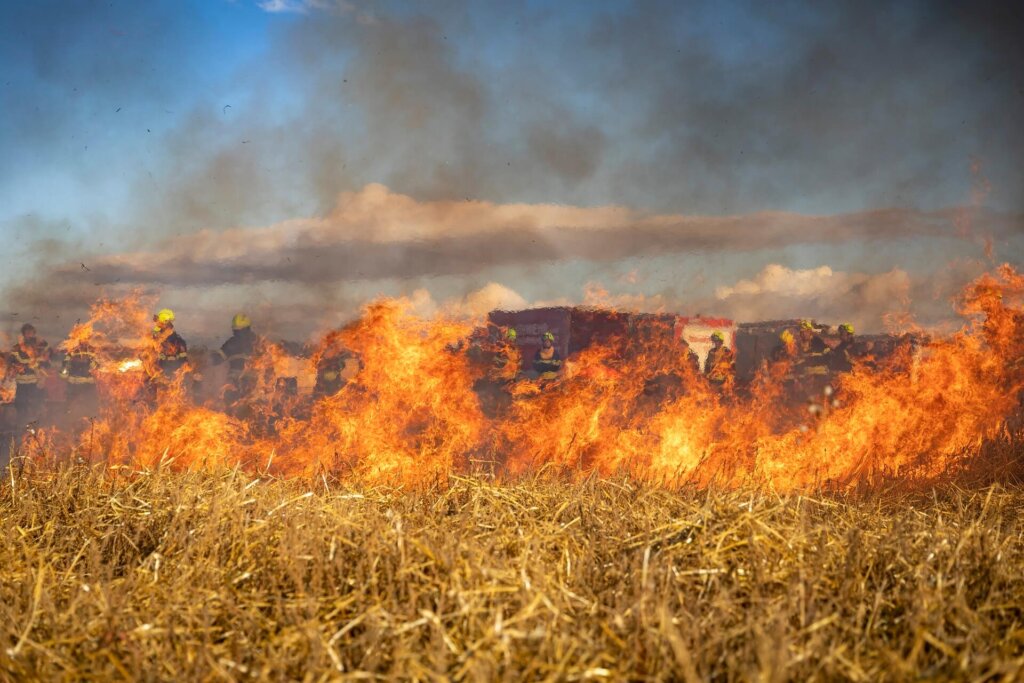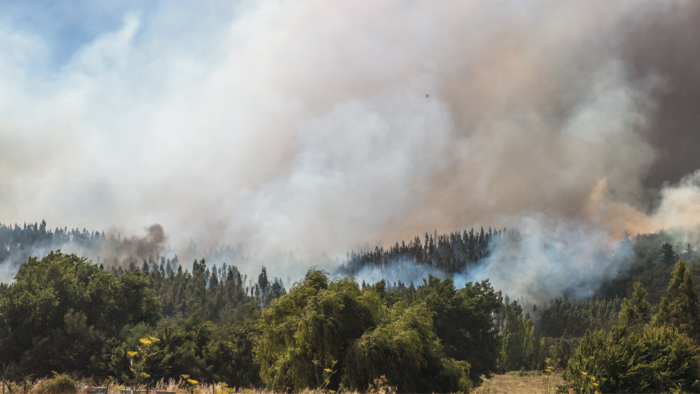Wildfires can be terrifying even when you only see them on a TV screen, but for people who find themselves in the middle of a fire’s path, the flames pose a real threat to their lives, property, and livelihoods. Knowing how to act during a fire emergency can make the difference between getting yourself and your family to safety or getting trapped in an at-risk area.
While the risk is significantly higher during wildfire season, wildfires can start throughout the year, even in winter. Especially now that the weather is becoming more unpredictable due to climate change, often resulting in droughts, heatwaves, and other extreme weather events, which, in turn, can lead to longer fire seasons and more devastating wildfires.
As long as there is enough flammable material to sustain its growth, even a single lightning or an unattended campfire can cause a huge fire capable of burning vast areas. That’s why it’s important to be cautious and prepared at all times, especially when visiting or living in wildfire-prone areas.
Table of Contents
TogglePrepare Your Home for a Wildfire
There are several steps you can take to increase your property’s chances of surviving a wildfire, such as:- using fire-resistant building materials to build and renovate your house,
- creating a safety zone around the property by clearing out any potential fire fuel such as shrubs, trees, vegetation, dry firewood, gas tanks, etc.,
- keeping your roof and gutters free of dry leaves and accumulated dirt.
- Install smoke alarms and fire detectors. Such devices can warn you early of potential fire threats and give you more time to prepare and evacuate if necessary.
- Fire can spread very quickly, so time is of the essence when it comes to getting out of its way. If you and your family need to evacuate, there’s no time to waste on packing and gathering your belongings. However, there are things, such as important documents (e.g., birth certificates, insurance policies, etc.) and valuables, that you really don’t want to lose in the unfortunate event of your house burning down. Keep such things in one place (e.g., a box that’s easy to carry) to easily find and take them with you when you need to leave.
- Stock basic food supplies, bottled water, and medications. This will ensure you have everything you need if you have to evacuate but also if you get trapped inside your home or are unable to go shopping for a couple of days. It’s worth keeping in mind that wildfires can disturb entire communities, including shops and services.
Create an Evacuation Plan
Hope for the best, but prepare for the worst. This is the best strategy when it comes to creating emergency and evacuation plans. And as you cannot predict every possible scenario, it’s always a good idea to have a backup plan in case something goes wrong, e.g., when the main road is blocked or there’s traffic, having an alternative route planned will help you find shelter quicker. You can speed up the evacuation process by staying organized, but this requires planning in advance. Have an emergency kit ready at all times, divide tasks (e.g., turning off utilities, getting the car ready, taking care of pets, gathering things you need to take) between family members, map out escape routes out of the building and the area, and, most importantly, make sure everyone knows the plan and their responsibilities. Your wildfire emergency kit should include:- A three-day supply of non-perishable food and water for each person
- A first aid kit (make sure it includes everything needed to treat burns) and any medications you may require
- A change of clothes (suitable for the season)
- Basic tools
- A battery-powered radio
- A flashlight
- Extra batteries, chargers, power banks
- A map of the area (consider marking escape routes and designated destinations in advance)
- Masks (with appropriate filters)
Pay Attention to Alerts and Official Announcements
To keep yourself and your home safe, you need reliable and up-to-date information about wildfire risks in your area. You can stay informed by:- following local news, weather forecasts, and announcements issued by local authorities,
- looking for information online,
- subscribing to community alerts, if available,
- installing a mobile app that sends you notifications whenever there’s a wildfire recorded near you.
Stay Alert When Visiting Forests and Wildland Areas
Forest fires can appear seemingly out of nowhere and pose a threat not only to those living in the area but also to hikers and campers. Before visiting any national park or forest, it’s always a good idea to check local news for any reports or warnings related to wildfires. When you arrive, make sure to respect local laws regarding campfires. If you notice any signs of a potential wildfire while hiking or camping, call 911 to report them immediately and vacate the area as quickly as possible.How to Survive a Wildfire if You’re Trapped
In case you cannot leave the area, don’t try to outrun the fire. Look for the nearest safe spot where you won’t be directly exposed to the flames and radiant heat. This can be any place with no vegetation that could burn, such as a lake, meadow, road, or even an area that has already burned. Things to remember when looking for a safe spot:- If you decide to take shelter in water, make sure it’s not too deep to avoid the risk of drowning.
- Wildfires tend to move with the wind, so it’s usually safer to travel upwind whenever possible.
- Fire spreads faster when moving uphill because the heat and smoke rise from below and dry out fuel (such as trees, shrubs, etc.) in front of the advancing fire, making it easier to burn.
- Inside your home: Close all doors, windows, and vents to prevent smoke from getting inside. Turn on the lights to make the building more visible and leave the doors unlocked to be able to leave or let the firefighters in quickly. Move all flammable items away from your windows and take shelter away from the outer walls.
- Outside: Try to reach a safe spot or burned ground. Look for a place to hide in or behind, such as a boulder, ground depression, or body of water. Cover your body with mud or a wet blanket to protect yourself from heat and getting burned. Cover your face with fabric to avoid breathing in hot air and smoke.
- In your vehicle: Park your vehicle as far away from vegetation and anything that can burn as possible. Keep all windows and vents closed to keep smoke out and lie down on the floor. Cover yourself with a jacket or blanket. Do not leave the vehicle until the threat has passed.



